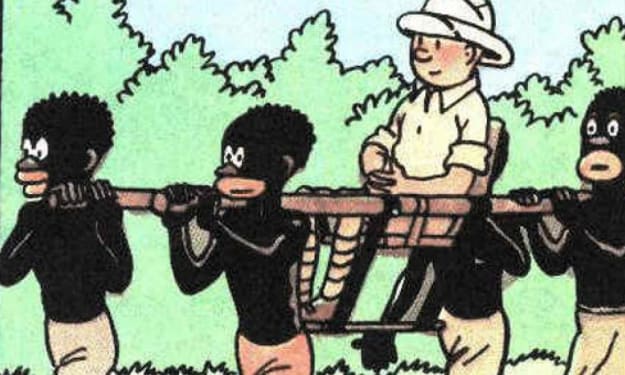Women, War and Power in David Malouf's 'Ransom'
The iconic author explores Homer's 'The Iliad', but why doesn't he discover any women?

Women in David Malouf’s Ransom are significant in their absence, remaining confined to the historical and social realities of the novel’s setting. While Malouf’s reinterpretation of the world of Homer’s Iliad explores the nature of violence, war and patrimony, these themes are never removed from their traditionally-understood place within the ‘masculine’ sphere of influence, and the author presents a society, in which woman’s importance exists only in her association with the deeds of great men. As a result, the women in Ransom serve only the roles a patriarchal society will permit; those of wives, mothers and handmaidens. Malouf’s choice not to challenge these stereotypes may be read as a result of his authorial loyalty to the source material, or, more-critically, as an exploration of the ways in which cultural narratives surrounding war and violence are presented as almost-entirely masculine affairs.
Through the character of Hecuba, Malouf explores the limits of influence that women may be allowed to exert under a patriarchy. As the mother of Priam and the favourite wife of Priam--a role that, in itself, betrays the unequal partnership of their marriage--Hecuba is afforded a level of intimacy that cannot be matched by any man in the kingdom; Priam, “moved by the the tenderness they have long-shared” (p. 50), discusses his past with her openly and vulnerably, bearing the pain and trauma of a childhood that cannot coexist with his official role of standing “apart in ceremonial stillness” (p. 53) as Troy’s stoic and unmoved sovereign. This vulnerability comes from the experience they share, having lost their child; while the rest of the kingdom knows him only as a King, Hecuba’s specific experience allows her a privileged level of access, it is to Hecuba, not his panel of all-male advisors, that he first reveals his mission to recover the body of their son. The relationship between the two characters cannot be considered one of domination and servitude, with Malouf instead choosing to depict Hecuba as capable of inspiring respect and, indeed, fear in her husband, the most powerful man in the kingdom;
Priam quails before this small, fierce, straight-backed woman he has known and not known for so many years (p. 51).
He must be strong now. He has long been afraid of this controlled rage in her (p. 57).
As evident in Priam’s decision to confide in Hecuba, and his sincere desire to convince her of the merits of his mission, Hecuba, through her socially-permissible roles of mother and wife, is able to exert a level of influence over the most powerful person in Troy that no man can rival.
However, Malouf establishes that this relationship has limitations under patriarchy; while Hecuba can speak honestly and earnestly with her husband, knowing as she does “all his doubts and foibles” (p. 62), the decision to journey to the Greek camp remains Priam’s and his alone, and he ultimately chooses to disregard her concerns and continue on a course of action that may have dire political consequences for their shared kingdom and “the many sons and daughters and their children who stand under his week protection” (p. 40). Furthermore, unable to convince Priam of the folly of his decision, she is forced to call upon the council of advisors he eschewed, understanding that “she needs the help of her sons” (p. 61), an acknowledgement that undermines the pre-established privilege of her wifely influence. From this perspective, Hecuba serves to provide nothing more than an opportunity for Priam to give voice to his fears and desires, allowing him to justify his actions to himself without having the power to change his mind. As such, through the character of Hecuba and her unique relationship with Priam, Malouf depicts a society in which the most-powerful women are, ultimately, subordinate and beyholdant to the follies of powerful men.
As with Hecuba, Malouf’s portrayal of women throughout the novel serves to explore the limits of female influence in the masculine realms of war and power. This is evident in the way in which female characters are often depicted as important only through their association with great men; Thetis, thes sea-nymph mother of Achilles and sole source of his divine power, is mentioned only within the context of her son’s greatness and does not exist in Ransom as her own character with aspirations or agency. Instead, her importance in the narrative is restricted to her association with Achilles, the ultra-masculine agent of war and impulsive violence. Malouf’s inclusion of other female characters is just as fleeting; while Somax speaks fondly of his daughter-in-law, the reader is given no insight into her character besides her relation to another male character and that she is skilled in her domestic, and thus feminine, duties. Somax’s detailed explanation of his daughter-in-law making hotcakes is full of respect and admiration, but ultimately it is admiration for her socially-permissible talents. A similar dynamic is explored through Malouf’s depiction of the women that prepare Hector’s body for burial; these women play an important role in both Malouf’s narrative and the society he depicts, but only inasmuch as they may help provide closure to the male characters, and outside of their role in this process, they are nonexistent. This is in stark contrast to the male characters of Priam, Achilles and Somax, through which Malouf articulates disparate and complex motivations. Malouf’s female characters fulfill their socially-permissible roles and then, as in the society he depicts, return to the peripheries of the narrative.
The disparity between female characters in David Malouf’s Ransom is considerable; women in Malouf’s narrative are scarce, and those that do appear are largely constrained in their agency by the social-realities of the patriarchal society he depicts. Even Hecuba, whose motivations and emotions the reader is afforded a level of insight into, remains unable to affect change and is ultimately beholdant to the powerful men in the narrative. This depiction is reflective of the society Malouf explores; war and the brutal struggle of power and violence has traditionally-been viewed as an exercise firmly-within the masculine sphere of influence, and within such a exercise, women have firmly-defined roles to fulfill; those of mothers, wives, daughters and handmaidens--present and important, but ultimately unable to transgress these roles. In a novel that explores the transgression of roles so-closely through the journey of Priam, this a telling choice from Malouf; while war provides the great heroes of antiquity with the possibility of self-discovery and transformation, in Ransom, it constrains women within the power structures of patriarchal society.
About the Creator
Enjoyed the story? Support the Creator.
Subscribe for free to receive all their stories in your feed. You could also pledge your support or give them a one-off tip, letting them know you appreciate their work.






Comments
There are no comments for this story
Be the first to respond and start the conversation.